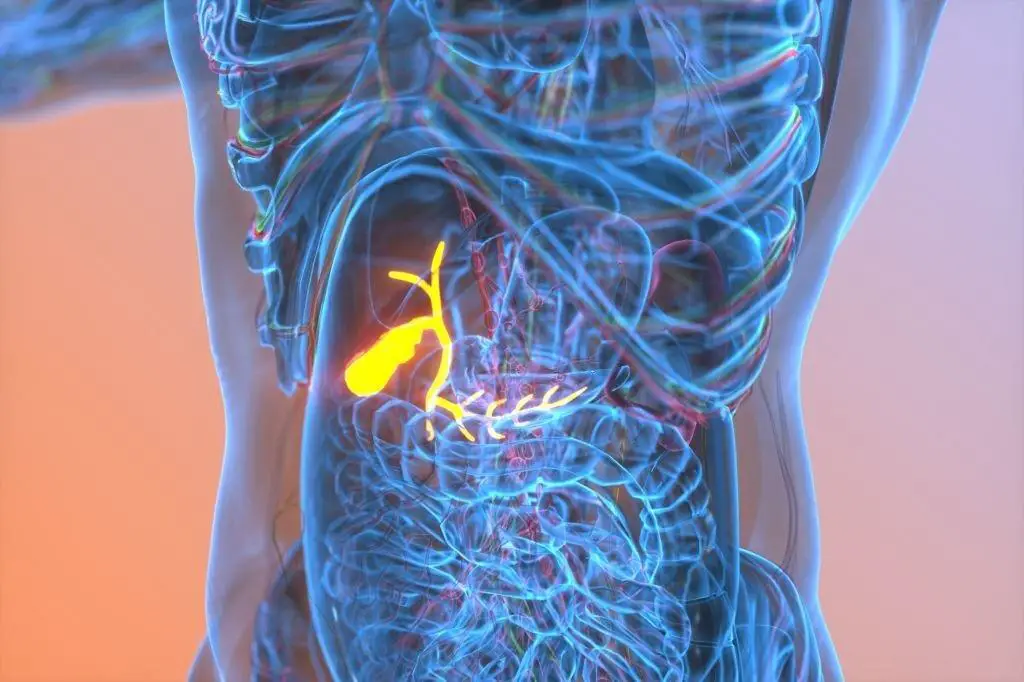Amazon Basics 2-Ply Toilet Paper, 30 Rolls (5 Packs of 6), Equivalent to 129 regular rolls
$25.21 ($0.24 / 100 Sheets) (as of April 27, 2024 12:30 GMT +00:00 - More infoProduct prices and availability are accurate as of the date/time indicated and are subject to change. Any price and availability information displayed on [relevant Amazon Site(s), as applicable] at the time of purchase will apply to the purchase of this product.)Introduction
Gallbladder surgery, also known as cholecystectomy, is a common procedure performed to remove the gallbladder due to various conditions. After this surgery, many wonder if the gallbladder can grow back. In this article, we will explore the topic in detail, providing insights into gallbladder surgery, regeneration possibilities, and the necessary precautions for a healthy recovery.
Understanding Gallbladder Surgery
The gallbladder is a small organ located beneath the liver that stores bile produced by the liver. It aids in the digestion of fats. When the gallbladder becomes diseased or develops gallstones, it can lead to significant discomfort and complications. In such cases, surgical intervention becomes necessary.
Gallbladder surgery involves the removal of the gallbladder, usually through minimally invasive techniques such as laparoscopic cholecystectomy. This procedure has proven to be highly effective in relieving symptoms and improving the quality of life for individuals with gallbladder issues.
Can a Gallbladder Regenerate?
Contrary to some misconceptions, the gallbladder cannot grow back once it has been completely removed. Unlike certain organs like the liver, which possess regenerative abilities, the gallbladder lacks this capability. Therefore, once a gallbladder has been surgically removed, it cannot regenerate or regrow.
Gallbladder Surgery Types
There are two main types of gallbladder surgery: laparoscopic cholecystectomy and open cholecystectomy. Laparoscopic cholecystectomy is the most common and less invasive procedure, where several small incisions are made to insert a laparoscope and surgical tools. Open cholecystectomy involves a larger incision in the abdomen to remove the gallbladder.
Recovery and Post-Surgical Care
After gallbladder surgery, proper post-operative care is crucial for a smooth recovery. Patients may experience some pain or discomfort at the incision sites, which can be managed with pain medications prescribed by the surgeon. It is essential to follow the surgeon’s instructions regarding wound care, activity restrictions, and dietary modifications during the recovery period.
Potential Complications
While gallbladder surgery is generally safe, like any surgical procedure, it carries some risks. Potential complications include infection, bleeding, injury to the bile ducts or nearby organs, and adverse reactions to anesthesia. It is essential to discuss these risks with the surgeon beforehand and seek immediate medical attention if any complications arise after the surgery.
Diet and Lifestyle Changes
After gallbladder surgery, dietary adjustments are necessary to ensure proper digestion and minimize discomfort. Since the gallbladder plays a role in fat digestion, individuals may experience changes in their digestion patterns. It is advisable to follow a low-fat diet initially and gradually reintroduce fats into the diet, monitoring how they are tolerated. Consulting with a healthcare professional or a registered dietitian can provide personalized guidance.
Long-Term Effects and Follow-up
The removal of the gallbladder does not significantly affect digestion or overall health in most cases. However, some individuals may experience changes in bowel habits, such as more frequent bowel movements or loose stools. These effects are usually mild and improve over time. Regular follow-up appointments with the surgeon are essential to monitor the recovery process and address any concerns.
FAQs
1. Can gallstones return after gallbladder surgery? Yes, in some cases, gallstones can form in the bile ducts even after gallbladder removal. These stones may require additional treatment.
2. How long does it take to recover from gallbladder surgery? The recovery time varies for each individual but usually ranges from a few days to a few weeks. Complete recovery may take several weeks to a few months.
3. Can I lead a normal life without a gallbladder? Yes, most people lead normal lives after gallbladder removal. However, some dietary adjustments may be necessary, particularly when consuming high-fat meals.
4. Are there any alternatives to gallbladder surgery? In some cases, medications may be prescribed to dissolve gallstones. However, this approach is less common and not suitable for everyone.
5. Can gallbladder problems occur even after surgery? In rare cases, individuals may experience bile duct problems or other related issues even after gallbladder surgery. Regular follow-up appointments are essential for monitoring and early detection.
Conclusion
Gallbladder surgery is an effective treatment for various gallbladder conditions. Although the gallbladder cannot regenerate once it has been removed, individuals can lead healthy lives without it. Post-surgical care, dietary modifications, and regular follow-up with healthcare professionals are crucial for the successful recovery and management of any potential complications.
1. Can the gallbladder grow back after surgery? No, the gallbladder cannot grow back once it has been surgically removed.
2. What are the different types of gallbladder surgery? The two main types of gallbladder surgery are laparoscopic cholecystectomy and open cholecystectomy.
Dr. Ahmed Raza, a renowned gastroenterologist with over 20 years of experience, is the dedicated founder of LifeWithNoGallbladder. With a passion for improving gallbladder health, Dr. Raza shares extensive insights, records, and guidance through his blog, providing individuals with the necessary information to make informed decisions.















